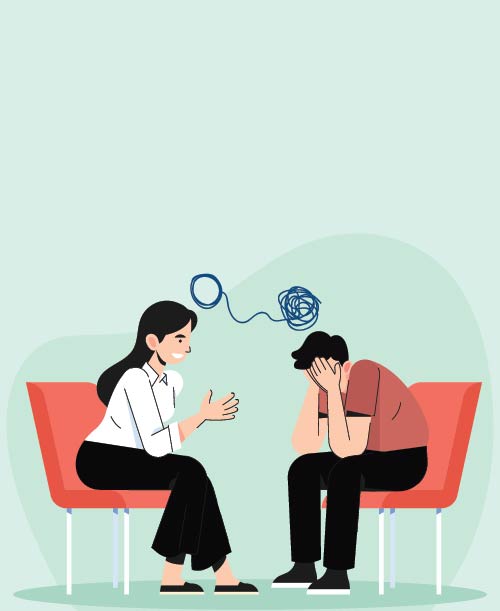

Counselling vs. Psychotherapy: Key Differences Explained
In today’s society, the importance of mental health is increasingly recognised, making professional support more accessible and accepted. However, understanding the difference between counselling and psychotherapy can be confusing for many. Whether you’re dealing with immediate challenges or seeking to heal from a traumatic experience in the past, knowing and reaching out for the right type of support can lead to a healthier, more fulfilling life. Read on to understand the difference between counselling and psychotherapy to help you make an informed decision about which approach may best suit your needs.
What is Counselling?
Counselling is a short-term, goal-oriented approach aimed at addressing specific mental health issues. It focuses on providing support, guidance, and practical solutions to assist individuals in managing immediate problems, such as resolving relationship conflicts, managing stress, coping with grief, and navigating career decisions. Counselling sessions are usually structured and goal-oriented, prioritising present issues rather than delving extensively into past experiences. Counsellors act as guides, providing structured sessions with clear goals. They equip you with techniques and strategies you can integrate into your daily life to overcome immediate challenges and foster greater resilience.
What is Psychotherapy?
Psychotherapy, on the other hand, is a more in-depth and long-term approach that delves into the root causes of emotional and behavioural issues. It can address various mental health issues, such as depression, anxiety, trauma, and personality disorders. It often involves exploring an individual’s thoughts, behaviours, and past experiences to gain insight into their psychological well-being. Psychotherapists are often trained in more in-depth psychological theories and techniques and are equipped to handle more severe psychological conditions. They use a combination of therapeutic techniques suited to your needs.
Difference Between Counselling and Psychotherapy
Understanding the difference between counselling and psychotherapy is crucial if you are seeking solutions for your immediate problems or long-term guidance and support for deeper psychological challenges and traumas. Here are the key distinctions:
| Feature | Counselling | Psychotherapy |
| Focus | Present situation | Underlying causes of current issues |
| Duration | Short-term (weeks to months) | Long-term (months to years) |
| Approach | Solution-oriented | In-depth exploration |
| Treatment techniques | Solution-focused therapy, cognitive behavioural therapy, communication skills training, psychoeducation | Psychodynamic therapy, humanistic therapy, art therapy, Eye Movement Desensitisation and Reprocessing (EMDR), and more |
| Goal | Develop coping mechanisms for immediate challenges | Achieve lasting change by addressing core emotional distress |
Conclusion
Counselling is typically short-term, focusing on specific issues with practical solutions, while psychotherapy is a long-term approach that explores deeper psychological issues and past experiences. Many therapists offer a blend of both approaches, tailoring their strategy to your specific needs. Whether you opt for counselling or psychotherapy, seeking the support you need to lead a healthier, more fulfilling life is essential.
One of the important components of our overall wellness is also being financially secured. Healthcare emergencies can happen any time, but a good health insurance policy can protect you from such uncertain situations. To know more about Wellness and other health related tips, visit the wellness corner.
Source: verywellmind, traumapractice, harleytherapy
Disclaimer: This blog provides general information and discussions about health and related subjects. The information and other content provided in this blog, website or in any linked materials are not intended and should not be considered, or used as a substitute for, medical advice, diagnosis or treatment. Kindly contact your Doctor before starting a new medicine or health regime.
Related Articles
Mental health during the time of Covid-19
Therapist vs. Psychiatrist: Key Differences
Published on September 19, 2024














 Health Insurance
Health Insurance  Travel Insurance
Travel Insurance  Car Insurance
Car Insurance  Cyber Insurance
Cyber Insurance  Critical Illness Insurance
Critical Illness Insurance
 Pet Insurance
Pet Insurance
 Bike/Two Wheeler Insurance
Bike/Two Wheeler Insurance  Home Insurance
Home Insurance  Third Party Vehicle Ins.
Third Party Vehicle Ins.  Tractor Insurance
Tractor Insurance  Goods Carrying Vehicle Ins.
Goods Carrying Vehicle Ins.  Passenger Carrying Vehicle Ins.
Passenger Carrying Vehicle Ins.  Compulsory Personal Accident Insurance
Compulsory Personal Accident Insurance  Travel Insurance
Travel Insurance  Rural
Rural